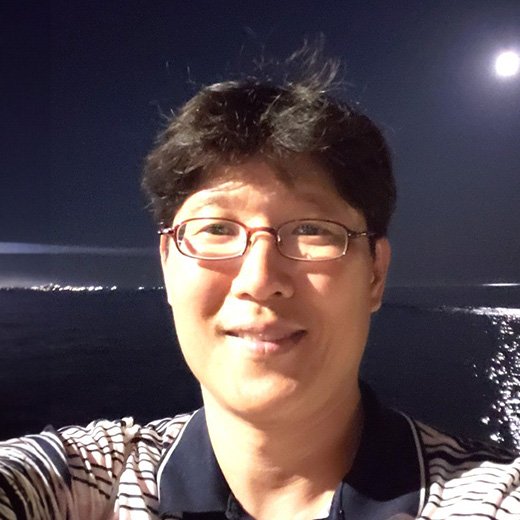
Related
Tae Seok Moon, Ph.D. is a professor at J. Craig Venter Institute in the synthetic biology group. Prior or joining JCVI, he was a professor at Washington University in St. Louis in the McKelvey School of Engineering. His research goals are to understand and engineer biological networks that genes and cellular processes use to solve energy, environmental, agricultural, and health problems. He has a broad background in systems and synthetic biology, with expertise in the development of engineered cells for practical applications.
His body of work includes engineering probiotic bacteria for medical applications, engineering bacteria to enable efficient production of biofuels, biomaterials, and chemicals from biomass and waste plastics, developing biocontainment strategies to prevent the spread of GMOs in the environment, building application-relevant biosensors and dynamic sensor-regulators, understanding and engineering microbiota and microbiota-host interactions using computational and experimental approaches, engineering biology for space exploration and engineered living materials, preventing antibiotic resistance spread by implementing engineering approaches, and engineering predictable RNA regulators.
Dr. Moon earned his BS and MS in chemical technology from Seoul National University in Seoul, Korea, and a Ph.D. under the guidance of Kristala Prather in chemical engineering with a minor in biological chemistry from Massachusetts Institute of Technology (MIT). He then completed a postdoctoral fellowship in the Christopher Voigt Group in the Department of Biological Engineering & Synthetic Biology Center at MIT and in the Department of Pharmaceutical Chemistry at the University of California-San Francisco.
Research Priorities
Biocontainment, biosafety, and biosecurity (funded by NIH, USDA, and EPA)
- Develop kill switches for biocontainment.
- Investigate the impact of GMOs on simulated environments.
- Prevent antibiotic resistance spread using engineering approaches.
Enabling waste valorization and solving the climate crisis (funded by AIChE, DARPA, DOE, JGI, and NSF)
- Plastic upcycling
- Food and agricultural waste valorization
- C1 gas conversion into value-added biomaterials and chemicals
- Additive manufacturing and engineered living materials using wastes as feedstocks
Engineering probiotics and organoids for biomedical application (funded by NIH)
- Developing probiotics for diagnostics and therapeutics
- Engineering organoids for diagnostics and as testbeds for therapeutics
- Developing biosensors and genetic circuits for biomedical applications
Microbiota engineering (funded by NIH, NSF, ONR, and USDA)
- Tool development for microbiota engineering in situ
- Gut and skin microbiota engineering
- Understanding and engineering plant-soil microbiota interactions
- Engineering the planet as a huge bioreactor
- Engineering synthetic consortia for space exploration
Understanding the rules of life, biological robustness, and evolution (funded by NSF URoL and NSF MCB)
- Understanding microbiota dynamics and its emergent behavior using computational and experimental approaches
- Understanding living systems by building genetic circuits from the bottom up
- Elucidating the principles of evolution
Publications
New biotechnology. 2024-05-25; 80.69-71.
Earth: Extinguishing anthropogenic risks through harmonization
New biotechnology. 2023-12-25; 78.150-152.
EBRC: Enhancing bioeconomy through research and communication
Cell reports methods. 2023-12-18; 3.12: 100669.
Engineering E. coli strains using antibiotic-resistance-gene-free plasmids
Frontiers in bioengineering and biotechnology. 2023-12-13; 11.1340377.
Editorial: CRISPR-aided bioengineering for value-added product development
PLoS computational biology. 2023-12-07; 19.12: e1011652.
Ten simple rules for managing laboratory information
PLoS biology. 2023-10-20; 21.10: e3002180.
Microbial thermogenesis is dependent on ATP concentrations and the protein kinases ArcB, GlnL, and YccC
Trends in biotechnology. 2023-09-01; 41.9: 1099-1105.
Impacting future generations of synthetic biologists by ensuring diversity, equity, and inclusion
ACS synthetic biology. 2023-06-16; 12.6: 1868-1873.
Characterizing a Propionate Sensor in E. coli Nissle 1917
ACS synthetic biology. 2023-06-16; 12.6: 1632-1644.
A High-Quality Genome-Scale Model for Rhodococcus opacus Metabolism
ACS synthetic biology. 2023-06-16; 12.6: 1583-1585.
SynHEAL: Synthesis of Health Equity, Advancement, and Leadership
Nature chemical biology. 2023-05-01; 19.5: 544-545.
Mining microbial metabolism
Cell reports. 2023-01-31; 42.1: 111908.
Upcycling of poly(ethylene terephthalate) to produce high-value bio-products
Proceedings of the National Academy of Sciences of the United States of America. 2023-01-03; 120.1: e2213154120.
Computational design of CRISPR guide RNAs to enable strain-specific control of microbial consortia
Trends in biotechnology. 2022-12-01; 40.12: 1405-1414.
SynMADE: synthetic microbiota across diverse ecosystems
Communications biology. 2022-10-19; 5.1: 1109.
Deciphering the transcriptional regulation of the catabolism of lignin-derived aromatics in Rhodococcus opacus PD630
Biodesign research. 2022-09-08; 2022.9806979.
Meta-Analysis of the Expansion in the Field of Structural Biology of ABC Transporters
Nature chemical biology. 2022-04-01; 18.4: 353.
Making space for young speakers
Cell systems. 2022-03-16; 13.3: 204-214.e4.
Engineering ligand-specific biosensors for aromatic amino acids and neurochemicals
ACS synthetic biology. 2022-02-18; 11.2: 522-527.
Making Security Viral: Shifting Engineering Biology Culture and Publishing
Nature communications. 2022-02-03; 13.1: 672.
Genetically stable CRISPR-based kill switches for engineered microbes
Environmental science & technology. 2021-06-15; 55.12: 8045-8053.
Duplex Structure of Double-Stranded RNA Provides Stability against Hydrolysis Relative to Single-Stranded RNA
ACS synthetic biology. 2021-04-16; 10.4: 786-798.
An Improved CRISPR Interference Tool to Engineer Rhodococcus opacus
Research Priorities
Biocontainment, biosafety, and biosecurity (funded by NIH, USDA, and EPA)
- Develop kill switches for biocontainment.
- Investigate the impact of GMOs on simulated environments.
- Prevent antibiotic resistance spread using engineering approaches.
Enabling waste valorization and solving the climate crisis (funded by AIChE, DARPA, DOE, JGI, and NSF)
- Plastic upcycling
- Food and agricultural waste valorization
- C1 gas conversion into value-added biomaterials and chemicals
- Additive manufacturing and engineered living materials using wastes as feedstocks
Engineering probiotics and organoids for biomedical application (funded by NIH)
- Developing probiotics for diagnostics and therapeutics
- Engineering organoids for diagnostics and as testbeds for therapeutics
- Developing biosensors and genetic circuits for biomedical applications
Microbiota engineering (funded by NIH, NSF, ONR, and USDA)
- Tool development for microbiota engineering in situ
- Gut and skin microbiota engineering
- Understanding and engineering plant-soil microbiota interactions
- Engineering the planet as a huge bioreactor
- Engineering synthetic consortia for space exploration
Understanding the rules of life, biological robustness, and evolution (funded by NSF URoL and NSF MCB)
- Understanding microbiota dynamics and its emergent behavior using computational and experimental approaches
- Understanding living systems by building genetic circuits from the bottom up
- Elucidating the principles of evolution